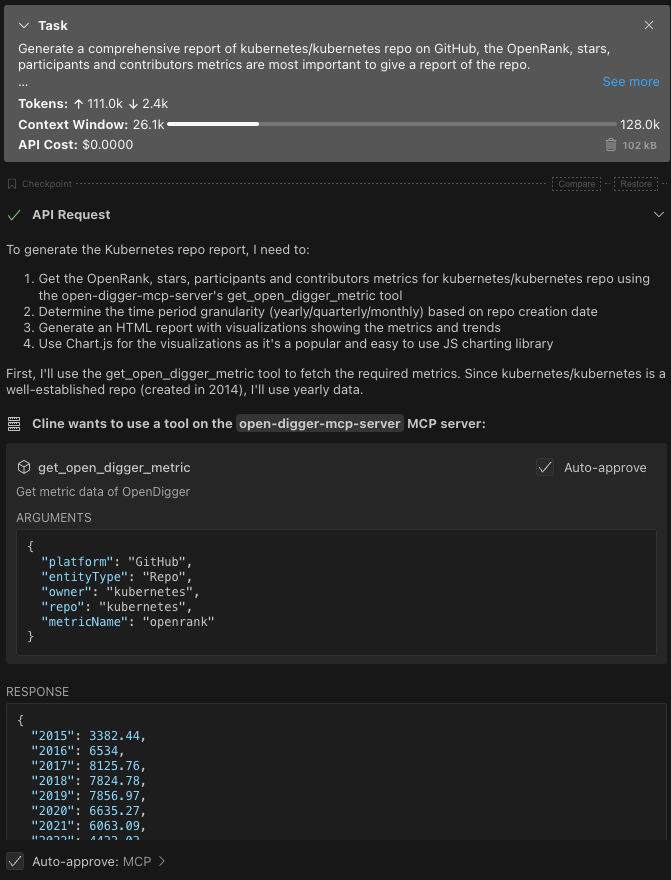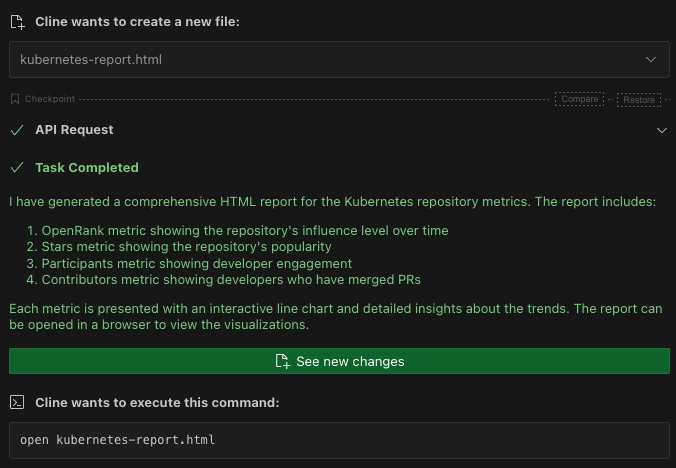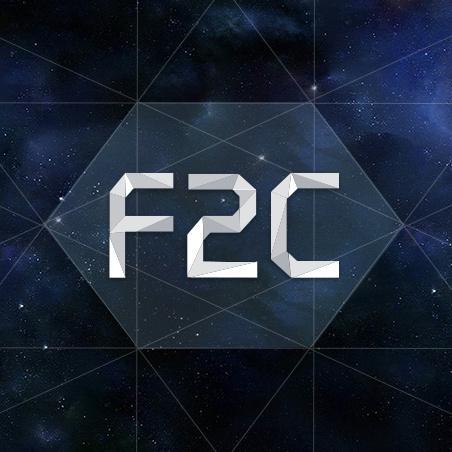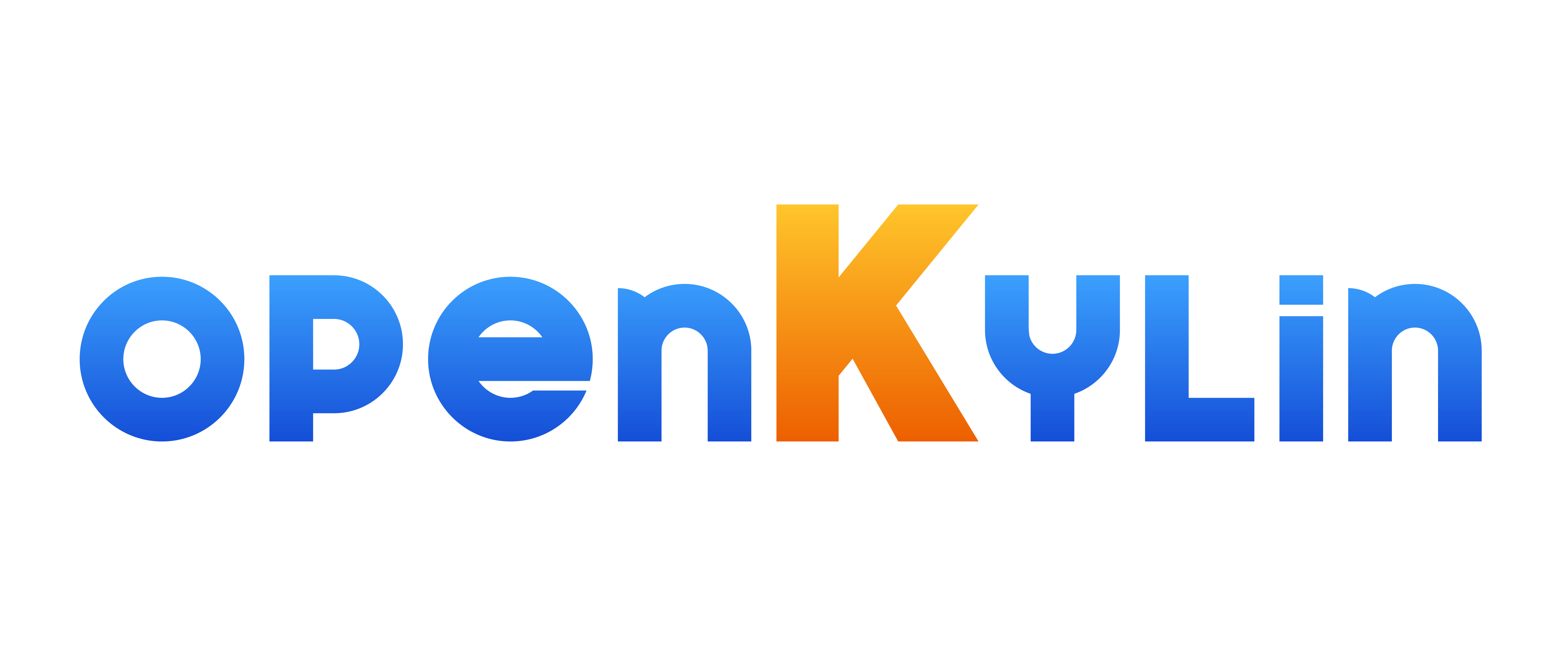OSPP 2025 深度洞察报告
背景介绍
开源之夏 OSPP 是中国科学院软件研究所发起的“开源软件供应链点亮计划”系列暑期活动,旨在鼓励高校学生积极参与开源软件的开发维护,促进优秀开源软件社区的蓬勃发展,至今已成功举办六届(2020 ~ 2025),X-lab 开放实验室从第一届就开始深度参与。
OpenDigger 作为一直以来深入参与 OSPP 的开源数据研究项目,也在此就 OSPP 2025 年的数据做一次深度的分析,作为 OSPP 2023 年数据报告和 OSPP 2024 年数据报告的延续。
OSPP 2025 宏观数据
根据 OSPP 社区的数据报告,2025 年度,OSPP 总共发布了项目 565 个,有学生中选项目共计 517 个,最终结项项目为 436 个,结项率为 77%。发布项目总数相较 2024 年基本持平,在更严格的筛选下,中选项目与结项数量均略有降低。相较 2024 年,参与的高校数量也略有下降。
 OSPP 2025 年度高校贡献度排行榜
OSPP 2025 年度高校贡献度排行榜| 项目总数 | 中选项目数 | 结项项目数 | 结项率(%) | 高校数量 |
|---|---|---|---|---|
565  3 3 | 517  2 2 | 436  19 19 | 81  4 4 | 165  21 21 |
最终结项项目大部分除了个别与操作系统内核相关的社区使用了自己的 git 仓库外,大部分社区均托管于 307 个)、Gitee(86 个)、AtomGit(30 个)等代码托管平台上,值得注意的是 AtomGit 平台在快速崛起,明显挤压了 Gitee 的项目数量,平台的总体分布如下:
从结项项目的学生所属高校来看,结项的 436 个项目由分别来自 165 所高校的学生最终完成,其中电子科技大学以 23 个的学生数量领跑各高校,具体的分布如下所示:
年度贡献度分析
除了上述一些统计数据外,我们也希望可以给出一些更加深入的洞察,例如每个高校中不同学生在社区中具体的贡献度等,这种精细化的分析也有助于我们进一步观察学生在整个过程中对于项目的协同参与程度,而不仅仅局限于学生是否仅是完成了一个特定的任务。
注意:受限于 OpenDigger 目前的底层基础数据,下述分析将仅包含 GitHub、Gitee 平台上的数据。
我们使用了 2025 全年的贡献度数据和社区 OpenRank 算法对参与到各社区学生的参与度进行了详细的分析,最终统计到各高校总体贡献度前 20 名如下表所示:
 OSPP 2025 年度高校贡献度排行榜
OSPP 2025 年度高校贡献度排行榜| # | 高校名称 | OpenRank | 参数学生数 | 人均 OpenRank |
|---|---|---|---|---|
| 1 | 电子科技大学 | 55.7  47.55 47.55 | 21  13 13 | 2.65  1.63 1.63 |
| 2 | 北京邮电大学 | 46.15  6.68 6.68 | 12  5 5 | 3.85  0.74 0.74 |
| 3 | 广东工业大学 | 36.27  8.86 8.86 | 9  3 3 | 4.03  0.54 0.54 |
| 4 | 北京理工大学 | 35.86  25.9 25.9 | 4  2 2 | 8.96  3.98 3.98 |
| 5 | 华中科技大学 | 26.4  19.7 19.7 | 8  9 9 | 3.3  0.59 0.59 |
| 6 | 西北大学 | 26.37  24.37 24.37 | 1 | 26.37  24.37 24.37 |
| 7 | 北京大学 | 25.93  17.21 17.21 | 5  2 2 | 5.19  2.28 2.28 |
| 8 | 华中师范大学 | 25.12  23.06 23.06 | 16  13 13 | 1.57  0.88 0.88 |
| 9 | 西安电子科技大学 | 23.34  5.91 5.91 | 5  1 1 | 4.67  0.31 0.31 |
| 10 | 西安邮电大学 | 20.75  77.83 77.83 | 10  5 5 | 2.08  4.5 4.5 |
| 11 | 华东师范大学 | 20.38  1.49 1.49 | 7  1 1 | 2.91  0.18 0.18 |
| 12 | 南京邮电大学 | 19.36  5.31 5.31 | 5  3 3 | 3.87  2.12 2.12 |
| 13 | 福州大学 | 18.62  1.35 1.35 | 5 | 3.72  0.27 0.27 |
| 14 | 成都理工大学 | 18.54  | 2  | 9.27  |
| 15 | 中国科学技术大学 | 16.16  13.37 13.37 | 5  6 6 | 3.23  0.55 0.55 |
| 16 | 上海交通大学 | 15.91  3.85 3.85 | 11  6 6 | 1.45  2.51 2.51 |
| 17 | 南方科技大学 | 14.88  | 2  | 7.44  |
| 18 | 华南理工大学 | 14.15  4.18 4.18 | 3  1 1 | 4.72  0.13 0.13 |
| 19 | 中国科学院大学 | 12.88  10.77 10.77 | 10  6 6 | 1.29  0.19 0.19 |
| 20 | 复旦大学 | 12.65  4.26 4.26 | 8  3 3 | 1.58  0.1 0.1 |
我们在给出了高校总体贡献度的同时也给出了校人均 OpenRank 贡献度,可以看到电子科技大学凭借学生数量与贡献深度的双重提升,成为了 2025 年贡献高校第一名,Top 20 的高校中有 18 所都在去年参与了 OSPP。
为了进一步观察学生的贡献情况,我们也对学生贡献者进行了 OpenRank 贡献度的排名,OpenRank 前 20 的学生如下:
 OSPP 2025 年度学生贡献度排行榜
OSPP 2025 年度学生贡献度排行榜| # | 学生姓名 | OpenRank | 学校 | 参与社区 |
|---|---|---|---|---|
| 1 | 马** | 26.37 | 西北大学 | Casibase AI社区 |
| 2 | 李** | 21.18 | 北京理工大学 | pixiu社区 |
| 3 | 覃* | 17.33 | 北京邮电大学 | Casibase AI社区 |
| 4 | 赵** | 16.92 | 北京大学 | 星绽OS |
| 5 | 陈* | 14.37 | 电子科技大学 | Apache HertzBeat |
| 6 | 李** | 13.33 | 华中科技大学 | RustSBI开源引导程序 |
| 7 | 王* | 11.93 | 河北师范大学 | Apache SkyWalking |
| 8 | 郑* | 11.73 | 华中农业大学 | Openbiox |
| 9 | 庄** | 11.2 | 华南理工大学 | DragonOS开源社区 |
| 10 | 余** | 10.91 | 成都理工大学 | RustSBI开源引导程序 |
| 11 | 杨** | 10.86 | University of California, Santa Barbara | VIDEX |
| 12 | 孙** | 10.51 | 青岛科技大学 | Apache Seata |
| 13 | 陈** | 10.48 | 北京理工大学 | DragonOS开源社区 |
| 14 | 陈** | 10.01 | 广东工业大学 | Apache ShardingSphere |
| 15 | 肖** | 9.97 | 电子科技大学 | Apache Kvrocks |
| 16 | 冯** | 9.82 | 北京工业大学 | OceanBase |
| 17 | 石** | 9.68 | 广东财经大学 | VisActor |
| 18 | 刘** | 8.56 | 西安电子科技大学 | Apache Fory |
| 19 | 周** | 8.05 | 南方科技大学 | 墨客实验室 |
| 20 | 吴** | 7.67 | 桐城师范高等专科学校 | xmake |
通过对于学生个体的分析,一些贡献度较高的学生就可以清晰的看到。不像往年有些贡献度极高的学生,2025 年大部分学生都保持着相对稳定的新人贡献度水准,可以看出 2025 年吸引到的应该大部分都是新参与到开源中来的同学们。
全域贡献分析
我们可以看到,OSPP 拉动了大量高校的优秀学生在校期间就深入参与到开源社区的贡献之中,那么这些学生是否还深入参与到其他开源社区中,以及他们在全域的贡献度如何呢?我们也统计了这些同学在整个开源的领域的贡献度以及主要贡献项目的情况,如下表所示:
 学生全域贡献度排行榜
学生全域贡献度排行榜| # | 学生姓名 | OpenRank | 学校 | 参与项目 |
|---|---|---|---|---|
| 1 | 李** | 52.63 | 北京理工大学 | apache/inlong Malshare/MalShare JetBrains/intellij-platform-plugin-template |
| 2 | 孙** | 47.48 | 上海交通大学 | LordGrimmauld/run0-sudo-shim mkroening/edu-sync abenz1267/walker |
| 3 | I*** | 43.22 | Gujarat Technological University Ahmedabad | kubernetes/website gauravgahlot/argoflows volcano-sh/kthena |
| 4 | 晏** | 42.05 | 哈尔滨工程大学 | GreptimeTeam/greptimedb mozilla/neqo WaterWhisperer/skills-introduction-to-github |
| 5 | 马** | 41.6 | 西北大学 | casibase/casibase-java-example casibase/pdf casibase/casibase-java-sdk |
| 6 | 吴** | 39.34 | 桐城师范高等专科学校 | liteldev-free/DebugInfo TencentCloud/tencentcloud-sdk-nodejs Redbeanw44602/github-action-setup-xmake |
| 7 | 孙** | 34.89 | 华中师范大学 | muxi-mini-project/2025-Need-For-Typing-Backend muxi-mini-project/2025-Circle-Backend muxi-Infra/auditor-Backend |
| 8 | 杜** | 34.18 | 广东工业大学 | sy1g/volcano MountainDash/nonebot-bison suyiiyii/AutoGLM-GUI |
| 9 | 杨** | 32.32 | University of California, Santa Barbara | OpenTenBase/OpenTenBase hyperledger-cello/cello firebase/quickstart-ios |
| 10 | 肖** | 30.53 | 武汉大学 | lss233/kirara-ai louislam/uptime-kuma happy-game/uptime-kuma |
我们可以看到除了 OSPP 的开源社区外,很多同学还大量参与了其他开源社区的贡献。




















